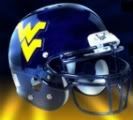Post by elp525 on Mar 16, 2011 7:52:39 GMT -5
March 15, 2011
WVU's Huggins among first to feel effects of bloated NCAA tourney field
By Dave Hickman
The Charleston Gazette
TAMPA, Fla. - The idea that Clemson is at a disadvantage when the NCAA tournament's round of 64 begins Thursday has pretty much already been blown out of the water.
Thank Connecticut for that.
Two games in 36 hours? Little time to prepare? Tired legs?
Yeah, right. So what?
"After just watching UConn go through five games in five days, I think that whole [theory] that you get tired after a couple of games in a row, it's hard to look at it that way anymore,'' West Virginia's Cam Thoroughman said. "It just goes to show that when you get momentum and you get on a roll then good things are going to happen. Those tired legs aren't really what everyone thinks they are.''
Connecticut, of course, went into the Big East tournament on a definite down note, having lost back-to-back games to West Virginia and Notre Dame and falling out of a first-round bye. So the Huskies began playing at Madison Square Garden on Tuesday and didn't stop until they had beaten DePaul and then the Nos. 8, 1, 4 and 3 seeds - Georgetown, Pitt, Syracuse and Louisville, respectively - to win the tournament.
How that grueling stretch will affect the Huskies as they begin play in the NCAA tournament remains to be seen, but it certainly showed that there is no real disadvantage in having played a game before an opponent had started.
UConn's second win came against a Georgetown team playing its first game. The Huskies third victory was against a Pitt team making its debut. The fourth win was against a Syracuse team playing for just the second time and the fifth win came against a Louisville team playing just its third game.
Now Clemson, which beat UAB 70-52 late Tuesday night, must face a West Virginia team that has had a full seven days rest and do so after traveling from Dayton, Ohio, and cramming for what amounts to a pop quiz.
Then again, it has been no picnic for West Virginia, either. The Mountaineers didn't know their opponent until late Tuesday night and will practice with someone specific in mind for the first time today, 24 hours before the game.
That has taken some getting used to for West Virginia coach Bob Huggins, who is coaching in his 19th NCAA tournament.
"This is all new for me,'' Huggins said. "These play-in games have always been for the 16th seed. I don't know if it was expanding the field a little bit or upsets in conference tournaments, but the so-called play-in games, the seed has risen dramatically.''
Well, the objective of the NCAA was to get away from seemingly penalizing just the small-conference automatic qualifiers when the field was expanded from 65 teams to 68 this year. With 65 teams, there was the need for just one play-in game to get the bracket down to a workable 64, and that game was always between two of the supposedly worst teams in the field, often upset winners of obscure leagues.
With 68 teams, four have to be eliminated to create a neat 64-team bracket. Two of those four play-in games still involve automatic qualifiers from small conferences, but the other two involve supposedly the last four at-large teams considered for bids. That's why teams are now playing two play-in games for No. 16 seeds (the least powerful of the automatic qualifiers) and two more for No. 11 or 12 seeds (the last at-large berths).
Huggins doesn't particularly care for it, but he'll adjust.
"Now, instead of playing somebody from a mid-major conference (that has been involved in the early games in Dayton) you're playing somebody from BCS conferences,'' Huggins said. "Which is fine. You play who you play. You've got to play everybody to win. But it takes a day of preparation away.''
WVU's Huggins among first to feel effects of bloated NCAA tourney field
By Dave Hickman
The Charleston Gazette
TAMPA, Fla. - The idea that Clemson is at a disadvantage when the NCAA tournament's round of 64 begins Thursday has pretty much already been blown out of the water.
Thank Connecticut for that.
Two games in 36 hours? Little time to prepare? Tired legs?
Yeah, right. So what?
"After just watching UConn go through five games in five days, I think that whole [theory] that you get tired after a couple of games in a row, it's hard to look at it that way anymore,'' West Virginia's Cam Thoroughman said. "It just goes to show that when you get momentum and you get on a roll then good things are going to happen. Those tired legs aren't really what everyone thinks they are.''
Connecticut, of course, went into the Big East tournament on a definite down note, having lost back-to-back games to West Virginia and Notre Dame and falling out of a first-round bye. So the Huskies began playing at Madison Square Garden on Tuesday and didn't stop until they had beaten DePaul and then the Nos. 8, 1, 4 and 3 seeds - Georgetown, Pitt, Syracuse and Louisville, respectively - to win the tournament.
How that grueling stretch will affect the Huskies as they begin play in the NCAA tournament remains to be seen, but it certainly showed that there is no real disadvantage in having played a game before an opponent had started.
UConn's second win came against a Georgetown team playing its first game. The Huskies third victory was against a Pitt team making its debut. The fourth win was against a Syracuse team playing for just the second time and the fifth win came against a Louisville team playing just its third game.
Now Clemson, which beat UAB 70-52 late Tuesday night, must face a West Virginia team that has had a full seven days rest and do so after traveling from Dayton, Ohio, and cramming for what amounts to a pop quiz.
Then again, it has been no picnic for West Virginia, either. The Mountaineers didn't know their opponent until late Tuesday night and will practice with someone specific in mind for the first time today, 24 hours before the game.
That has taken some getting used to for West Virginia coach Bob Huggins, who is coaching in his 19th NCAA tournament.
"This is all new for me,'' Huggins said. "These play-in games have always been for the 16th seed. I don't know if it was expanding the field a little bit or upsets in conference tournaments, but the so-called play-in games, the seed has risen dramatically.''
Well, the objective of the NCAA was to get away from seemingly penalizing just the small-conference automatic qualifiers when the field was expanded from 65 teams to 68 this year. With 65 teams, there was the need for just one play-in game to get the bracket down to a workable 64, and that game was always between two of the supposedly worst teams in the field, often upset winners of obscure leagues.
With 68 teams, four have to be eliminated to create a neat 64-team bracket. Two of those four play-in games still involve automatic qualifiers from small conferences, but the other two involve supposedly the last four at-large teams considered for bids. That's why teams are now playing two play-in games for No. 16 seeds (the least powerful of the automatic qualifiers) and two more for No. 11 or 12 seeds (the last at-large berths).
Huggins doesn't particularly care for it, but he'll adjust.
"Now, instead of playing somebody from a mid-major conference (that has been involved in the early games in Dayton) you're playing somebody from BCS conferences,'' Huggins said. "Which is fine. You play who you play. You've got to play everybody to win. But it takes a day of preparation away.''





